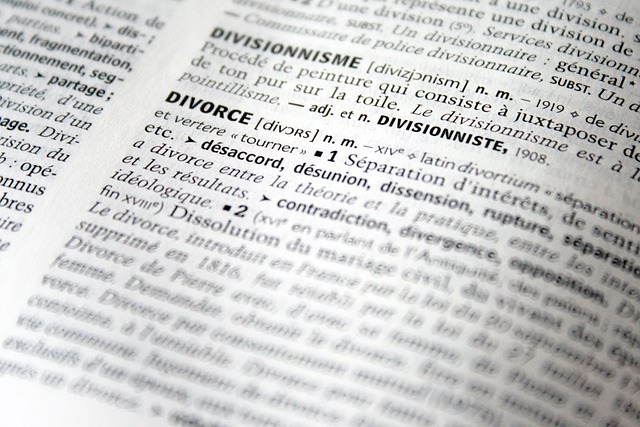Grandparent visitation rights, governed by regional laws and case law, prioritize children's best interests while allowing grandparents reasonable access. Skilled family law attorneys are essential for navigating these complexities, advocating for substantial visitation time, and balancing parental and grandparental interests. Evidence of positive interactions, understanding state-specific statutes, and seeking legal counsel are key steps in securing these rights. Attorneys facilitate negotiations, mediation, or court proceedings to achieve favorable outcomes, followed by post-decision support to protect and preserve visitation privileges.
Grandparent visitation rights are an essential aspect of family law, recognizing the significant bond between grandparents and their grandchildren. This article explores the crucial role a skilled attorney plays in advocating for these rights. We guide you through the legal framework, from understanding your entitlements to navigating court proceedings, offering insights on evidence, arguments, and post-decision support. Discover how an attorney can empower grandparents seeking visitation, ensuring their connections with loved ones are protected and upheld.
- Understanding Grandparent Visitation Rights: Legal Framework
- The Role of an Attorney in Grandparent Rights Advocacy
- Common Challenges Faced by Grandparents Seeking Visitation
- Building a Strong Case: Evidence and Legal Arguments
- Negotiation, Mediation, and Court Proceedings
- Post-Decision Support: Enforcing and Maintaining Rights
Understanding Grandparent Visitation Rights: Legal Framework

Grandparent visitation rights are a crucial aspect of family law, recognizing the significant role that grandparents often play in their grandchildren’s lives. The legal framework surrounding these rights varies by jurisdiction but generally aims to balance the interests of both the child and the grandparent while also considering the best interests of the child as the paramount concern.
In many places, grandparent visitation is governed by specific statutes or case law precedents that outline the circumstances under which grandparents can seek visitation rights. These laws may grant grandparents a legal right to visit their grandchildren, subject to reasonable restrictions and court orders. Factors such as the quality of the grandparent-grandchild relationship, the child’s well-being, and the parents’ agreement (or disagreement) are often considered in determining the terms of visitation. Skilled attorneys specializing in family law can guide grandparents through this process, ensuring their rights are protected and advocating for meaningful time with their grandchildren.
The Role of an Attorney in Grandparent Rights Advocacy

When advocating for grandparent visitation rights, having a skilled attorney by your side is invaluable. Their expertise lies in navigating complex family law matters and understanding the nuances of state laws regarding parental rights and grandparent access. An attorney can provide crucial guidance on the legal options available, helping to craft a strong case that respects both the parent’s rights and the grandparent’s desire for meaningful relationships with their grandchildren.
Through strategic legal representation, these professionals can ensure fair proceedings, protect the interests of grandparents and children alike, and advocate for regular and consistent visitation schedules when appropriate. Their knowledge of court procedures, along with their ability to present compelling arguments, increases the chances of a positive outcome, enabling families to foster lasting connections between grandparents and grandchildren.
Common Challenges Faced by Grandparents Seeking Visitation

Grandparents seeking visitation rights often encounter several common challenges. One significant hurdle is the legal complexity surrounding these cases, where state laws and court interpretations can vary widely. This makes it crucial for grandparents to consult an experienced attorney who specializes in grandparent rights advocacy. Such a lawyer can navigate the intricate legal landscape, ensuring that their clients’ rights are protected and their arguments are presented effectively.
Another challenge is emotional and often personal in nature. Grandparents may face resistance from parents or other family members, sometimes rooted in past conflicts or misunderstandings. An attorney not only provides legal guidance but also offers support to help grandparents navigate these emotional complexities. By presenting a united front with their lawyer, grandparents can better advocate for their right to maintain a significant and loving presence in their grandchild’s life.
Building a Strong Case: Evidence and Legal Arguments

Building a strong case for grandparent visitation rights starts with robust evidence and compelling legal arguments. Collect detailed records of interactions with the child, including photographs, videos, and affidavits from other family members or friends who can attest to the positive impact of your involvement in the child’s life. These personal connections can significantly strengthen your case, demonstrating a genuine interest in maintaining a relationship.
Legally, familiarize yourself with relevant statutes and case law pertaining to grandparent visitation rights in your jurisdiction. Each state has its own guidelines, so understanding these laws is crucial for presenting a well-founded argument. Your attorney should be adept at navigating these complexities, utilizing legal precedents to advocate for your rights and ensuring every detail of the case is meticulously handled.
Negotiation, Mediation, and Court Proceedings

When advocating for grandparent visitation rights, skilled attorneys often employ various strategies to achieve a favorable outcome. Negotiation is a key step where the attorney and the opposing party discuss terms to reach an agreement outside of court. This process can be beneficial as it’s often less expensive and faster than formal proceedings. The goal is to find a mutually acceptable arrangement that allows grandparents meaningful time with their grandchildren while respecting the parents’ rights and wishes.
If negotiation fails, mediation becomes the next step. Mediation involves a neutral third party who assists in facilitating communication between both parties. This approach encourages collaboration and problem-solving, allowing for more creative solutions to be considered. Ultimately, if an agreement cannot be reached amicably, court proceedings may become necessary. During these formal legal processes, the attorney presents evidence and arguments on behalf of their client, advocating for the grandparent’s right to maintain or regain visitation with their grandchildren.
Post-Decision Support: Enforcing and Maintaining Rights

After a successful legal battle for grandparent visitation rights, our dedicated attorney will provide comprehensive post-decision support to ensure these hard-fought privileges are upheld and maintained. This includes guiding clients through the process of enforcing their newly acquired rights, addressing any potential challenges that may arise, and offering practical advice on how to navigate this new phase.
We understand the importance of consistent and meaningful interactions between grandparents and their grandchildren. Our team will work diligently to support families in making sure grandparent visitation rights are respected and exercised, fostering a strong and lasting bond between generations. This involves regular check-ins, legal updates, and proactive measures to prevent any interruptions or disputes that could impact the precious time spent together.
